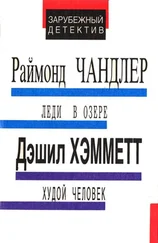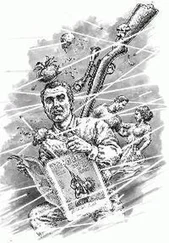Аврам Дэвидсон - Peregrine - primus
Здесь есть возможность читать онлайн «Аврам Дэвидсон - Peregrine - primus» весь текст электронной книги совершенно бесплатно (целиком полную версию без сокращений). В некоторых случаях можно слушать аудио, скачать через торрент в формате fb2 и присутствует краткое содержание. Год выпуска: 1971, ISBN: 1971, Издательство: New York : Walker, Жанр: sf_all, на английском языке. Описание произведения, (предисловие) а так же отзывы посетителей доступны на портале библиотеки ЛибКат.
- Название:Peregrine : primus
- Автор:
- Издательство:New York : Walker
- Жанр:
- Год:1971
- ISBN:0802755461
- Рейтинг книги:5 / 5. Голосов: 1
-
Избранное:Добавить в избранное
- Отзывы:
-
Ваша оценка:
- 100
- 1
- 2
- 3
- 4
- 5
Peregrine : primus: краткое содержание, описание и аннотация
Предлагаем к чтению аннотацию, описание, краткое содержание или предисловие (зависит от того, что написал сам автор книги «Peregrine : primus»). Если вы не нашли необходимую информацию о книге — напишите в комментариях, мы постараемся отыскать её.
Peregrine : primus — читать онлайн бесплатно полную книгу (весь текст) целиком
Ниже представлен текст книги, разбитый по страницам. Система сохранения места последней прочитанной страницы, позволяет с удобством читать онлайн бесплатно книгу «Peregrine : primus», без необходимости каждый раз заново искать на чём Вы остановились. Поставьте закладку, и сможете в любой момент перейти на страницу, на которой закончили чтение.
Интервал:
Закладка:
“What I mean to say is: In the cubby there are clean clothes, some of which should certainly fit you, and all of which are dry.”
Appledore emerged from the cubby not only with dry clothes, but with a rough chart of the river, which he had found below hanging from a peg. “Nimrunna,” he said, “is next port below, I perceive.”
Eugenius nodded thoughtfully. “Nimrunna is next, and let us hope Nimrunna is more peacefully inclined to us than Calicum, for the channel of the river thereabouts is such that we must swing in so close to shore there that, were the city captured by a mutiny of schoolboys, they might sweep our decks with apples.
“However, if all goes well, we may perhaps be able to pick up a cargo there, as the All-Seeing Serpent knows where our original cargo now lies. And if no cargo, then I would load ballast, even if water ballast, for we now are so light we ride high—all very well in these narrows and shoals—but below Nimrunna commence the broads, currents are tricky, and I would not wish to depend upon further magic, should we be troubled.”
“Nor I,” said Appledore, rather weakly.
But Polonius, the Prefect of the Port, greeted Eugenius as an old acquaintance. Howbeit, he expressed disappointment. “Why I had thought you would bring us some fine fells,” he said, “for to make those sheepskin coats which justly fame our name, as
AVRAM DAVIDSON
[ 79 ]
well as many bales of prime wool for our well-known spinning and dyeing establishments. Strangers,” he said, addressing Peregrine, Appledore, and Claud, “you may or may not have heard ot Nimrunna before, away back in wherever you hail from, but you will hear of us wherever you may go from now on, yessirs, Nimrunna is a thriving place, Nimrunna is up-and-coming. Nimrunna eschews not only the indolence of paganism and the unworldliness of heresy, but the feverish yet unproductive excitement of fanaticism as well. And what’s the consequence? Why, the consequence is that we here in Nimrunna are spreading our city limits and our city’s products far and wide. A mere decade ago Nimrunna was little more than a place to take on water and pay tolls, so small that it had only a handful of citizens, not more than a hundred, with only three bishops, thirty churches, and half-a-dozen whorehouses; think of that!
“Whereas, thanks to industry and immigration and the reign of that most benign and intelligent of Caesars, Augustus XXV, who often laughingly refers to himself as Stingy Gus, we here in Nimrunna can now boast of fifteen sawmills, ten boatyards, thirty kilns producing the widest range of pottery products conceivable, from penny oil lamps to vintage-season amphorae; we have two score smithies, of which eleven provide prime service lor horse and mule alike, the other nine specializing in ox-forgework, thirteen thread mills, four-and-forty oil-presses, thirty dye-works, six sausage-, ham-, and bacon-smokehouses, five fullers’ yards, and what good is it all if no cargo comes in? If you don’t sell you can’t buy, and all I observe aboard are three strangers, mighty welcome of course, but not for sale are they, ho ho ho, but no wool, confound it—only the smell!”
And he gave a dry chuckle and a jovial wheeze, but there was that in his aspect which bespoke one who missed his tolls, his excises, fees, ad valorems, customs duties, and in particular his traditional perquisites; and rather hungrily he eyed the saddlebags, all that remained of what had come forth out of Sapodilla.
“Now, now,” cautioned Eugenius, “you know that you are not to levy upon personal gear which has travelled fewer than five ports along the river; and moreover, this fine young stripling is blood-kin to an Allied King and hence free of all and any imposts, and the other two are, respectively, his personal physician and tutor, and his-body-servant.”
The prefect raised his hands and bowed and looked suitably impressed . . . but still his eyes roved round and darted to and from the saddlebags . . . and so Peregrine said, “Are you not by virtue of your post and office authorized to make payments on behalf of the Imperial Bursary to those having the appropriate parchment scrip?”
At the mention of the words, make payment, the prefect’s eyes grew large and he began to shake his head, and by the time Peregrine had finished the prefect’s eyes were very large indeed and his head almost wobbled with the vigor with which he hastened to deny the very possibility and indeed the very propriety of his being asked to pay, rather than to collect. “Ah, no no no and no!” he declared. “Of course you are a stranger and so you would not be aware that— It is quite out of the question for The office of the prefect and that of the bursar are two entirely separate and distinct func- func- functions, functions distinct and, or, that is,” and finally he paused and collected the words for the essential phrase so dearly beloved to civil servants in all times and in all climes: “That is not my department!”
Then, with some degree of haste, he invited the newcomers to attend services at any of the city’s seventy-five churches, all quite clear of any taint of heresy; as well as those provided by the ninety-nine brothels, all of which were government-inspected and fully-licensed. Then he bowed and withdrew.
Claud spoke first. “Ninety-nine,” he said, awed.
Peregrine snorted. “Just tell them who you are,” he suggested, “and show them what you’ve got.”
The sarcasm passed over Claud’s head. “No,” he said, “that wouldn’t work. You’ve got to pay them money.”
“Surely you can think of something else?”
Claud digested this, and came to a reluctant conclusion. “You mean,” he said, “that we haven’t got any more money?”
“I mean that we haven’t got any more money, is what I mean.”
Claud got briskly to his feet. “Boy!” he called, to a dock-side lounger old enough to have been his father. “Which way is the Imperial Bursary?”
It was quite a long way. “I miss my mule,” said Claud.
Appledore grunted. “When had you ever been favored with a mule before?” he asked. “I miss my jackass, the Child of
Abraxas. Your mule were merely one which happened to be issued to you by the stable-thralls as part of Peregrine’s entitles, but the ass-Child of Abraxas I more-or-less made myself from the primal elements.”
“You made him out of a second-hand hide and a bag of bones which were Queen Calpurnia’s idea of a joke, and by means of the foulest magic a real pagan would be ashamed to use, I bet,” countered Claud.
Appledore said, somewhat smugly, “If life hands you a lemon, make lemonade.”
The streets of Nimrunna were impeccably clean, which was rather strange, and totally devoid of loungers, which was stranger still. And although people were seen going into the churches and cathedrals, and coming out of them, none of them were gathered outside discussing divine theology or sacred metaphysics or, indeed, anything else. Everyone bustled, and everyone seemed to be carrying something, either a bulk object such as a board or a brick, or a string-bag full of merchandise, or a box of tools, or at least a single tool. One such, who gave them a sidelong look as he passed, was carrying an axe; and him Peregrine hailed.
“Are you a woodsman, sir?” he asked.
The man snorted. “Why don’t you ask me if I’m a cameleopard while you’re at it? No, of course I’m no woodsman, I was educated a rhetorician, but that game’s washed up now.”
“Why then do you carry an axe?”
“Because if I was carrying a book of rhetoric, Stingy Gus would have me shackled in a second as being a non-productive element; and toting smashed rock in a gravel quarry would be the death of me. Of course he knows very well that I barely know one end of this vile implement from another, but I am obliged to pay trade-tax as a woodsman, and I do pay trade-tax as a woodsman, you can bet your foreskin. Besides, it looks well.”
Читать дальшеИнтервал:
Закладка:
Похожие книги на «Peregrine : primus»
Представляем Вашему вниманию похожие книги на «Peregrine : primus» списком для выбора. Мы отобрали схожую по названию и смыслу литературу в надежде предоставить читателям больше вариантов отыскать новые, интересные, ещё непрочитанные произведения.
Обсуждение, отзывы о книге «Peregrine : primus» и просто собственные мнения читателей. Оставьте ваши комментарии, напишите, что Вы думаете о произведении, его смысле или главных героях. Укажите что конкретно понравилось, а что нет, и почему Вы так считаете.






